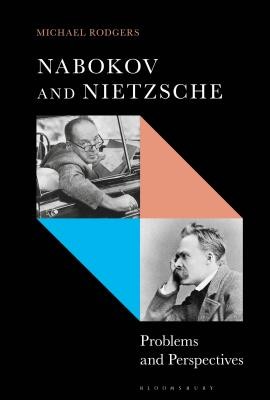
- We will send in 10–14 business days.
- Author: Michael Rodgers
- Publisher: Bloomsbury Publishing PLC
- Year: 2019
- Pages: 192
- ISBN-10: 1501359134
- ISBN-13: 9781501359132
- Format: 15.2 x 22.9 x 1 cm, minkšti viršeliai
- Language: English
- SAVE -10% with code: EXTRA
Reviews
Description
Awarded the Jane Grayson Prize by the International Vladimir Nabokov SocietyNabokov and Nietzsche: Problems and Perspectives addresses the many knotted issues in the work of Vladimir Nabokov - Lolita's moral stance, Pnin's relationship with memory, Pale Fire's ambiguous internal authorship - that often frustrate interpretation. It does so by arguing that the philosophy of Friedrich Nietzsche, as both a conceptual instrument and a largely unnoticed influence on Nabokov himself, can help to untie some of these knots.
The study addresses the fundamental problems in Nabokov's writing that make his work perplexing, mysterious and frequently uneasy rather than simply focusing on the literary puzzles and games that, although inherent, do not necessarily define his body of work. Michael Rodgers shows that Nietzsche's philosophy provides new, but not always palatable, perspectives in order to negotiate interpretative impasses, and that the uneasy aspects of Nabokov's work offer the reader manifold rewards
EXTRA 10 % discount with code: EXTRA
The promotion ends in 22d.12:03:42
The discount code is valid when purchasing from 10 €. Discounts do not stack.
- Author: Michael Rodgers
- Publisher: Bloomsbury Publishing PLC
- Year: 2019
- Pages: 192
- ISBN-10: 1501359134
- ISBN-13: 9781501359132
- Format: 15.2 x 22.9 x 1 cm, minkšti viršeliai
- Language: English English
Nabokov and Nietzsche: Problems and Perspectives addresses the many knotted issues in the work of Vladimir Nabokov - Lolita's moral stance, Pnin's relationship with memory, Pale Fire's ambiguous internal authorship - that often frustrate interpretation. It does so by arguing that the philosophy of Friedrich Nietzsche, as both a conceptual instrument and a largely unnoticed influence on Nabokov himself, can help to untie some of these knots.
The study addresses the fundamental problems in Nabokov's writing that make his work perplexing, mysterious and frequently uneasy rather than simply focusing on the literary puzzles and games that, although inherent, do not necessarily define his body of work. Michael Rodgers shows that Nietzsche's philosophy provides new, but not always palatable, perspectives in order to negotiate interpretative impasses, and that the uneasy aspects of Nabokov's work offer the reader manifold rewards


Reviews